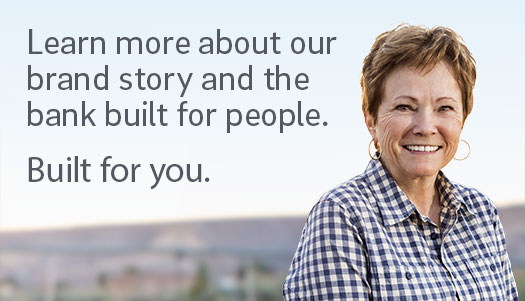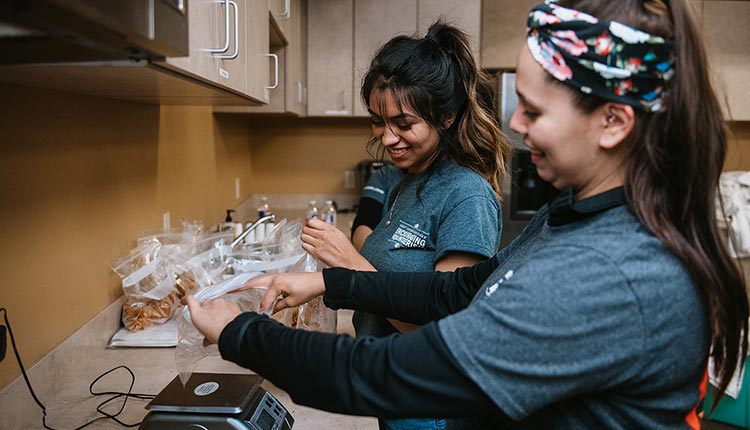
At First Interstate, we are committed to Seeing the Good and Lending a Hand in our communities. This year, we are partnering with more than 200 nonprofits for our fourth annual Volunteer Day on Wednesday, September 8. We have highlighted a few below. Read on to learn more about the good they do and how you can help them flourish!
Humane Society of Central Oregon
Boys and Girls Clubs of Ada County
Second Harvest
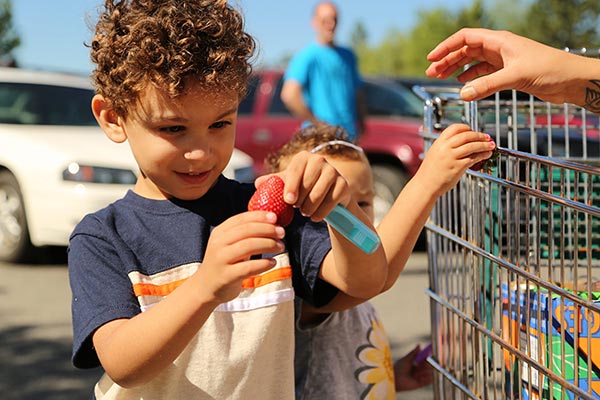
Second Harvest is on a mission to fight hunger and feed hope in Eastern Washington and North Idaho. And that starts with Feeding Kids First. Ensuring the children in our communities are well-fed helps those children develop healthy habits, improves educational outcomes, and relieves financial pressure for guardians.
Second Harvest also prioritizes nutrition education. Being in one of the most agriculturally rich regions in the country, they prioritize acquiring and distributing fresh and perishable crops such as apples, potatoes, sweet corn, onions, beans, lentils, and more. When safe to do so, Second Harvest looks forward relaunching on- and off-site nutrition education efforts — offering food samples, cooking demonstrations, and recipes during distributions. By providing tools and resources to prepare nutritious meals on limited budgets, people facing hunger are empowered to make healthy, yet economical food choices and strengthen healthy habits.
People can find themselves facing food insecurity suddenly, and Second Harvest is aware of the gap in services available to individuals who make too much money to qualify for government assistance but not enough to meet their basic needs. To serve this demographic, Second Harvest works with 280 food pantry and meal program partners to provide what they need to keep their shelves stocked. For many, a daily meal is a simple choice of what to eat. But for people facing hunger, a daily meal poses a very different type of choice. It’s often an impossible choice between food and other crucial needs, such as electricity, childcare, or medicine. Food shouldn’t be an impossible choice.
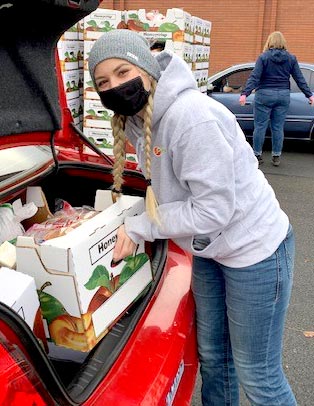
In the 2020 calendar year, working with their 250-plus partners, Second Harvest distributed more than 52.9 million pounds of food, a 58% increase over the 2019 calendar year total of 33.6 million pounds. That equates to more than 44 million meals, compared with slightly more than 28 million meals the year before. And, they’re conscientious that recovery takes time — it took Americans a decade to recover from food insecurity brought on by the Great Recession, Elaine Waxman, senior fellow at the Income and Benefits Policy Center at the Urban Institute, told the PBS News Hour in September 2020.
Does Second Harvest’s mission speak to you? There are several ways to get involved and lend a hand. Second Harvest relies on the generosity and compassion of individuals and organizations who share the belief that hunger is unacceptable. This important work happens because of and through people who take action to share food today and hope for a better tomorrow.
You can register online to volunteer in Spokane or the Tri-Cities, or check with your local food pantry. Please note, the kitchen efforts (including becoming a Nutrition Ambassador) are on hold amid the pandemic.
You can make a one-time or recurring donation to Second Harvest. By giving just $1, you provide food for five meals!
You can also contribute by hosting a fundraiser or food drive at your place of business, church, or other community location. Or, simply stop by and donate food yourself. The following shelf-stable items are always welcome as donations:
- Canned fish and lean meats
- Healthy soups and stews
- Dry or canned beans
- Whole grain pasta, rice, and cereal
- Canned fruits and vegetables
- Peanut butter and other nut butters
You can also plan to leave a gift for Second Harvest in your will, estate plan or trust.
Thank you, Second Harvest, for all the good you do in your communities!
Humane Society of Central Oregon
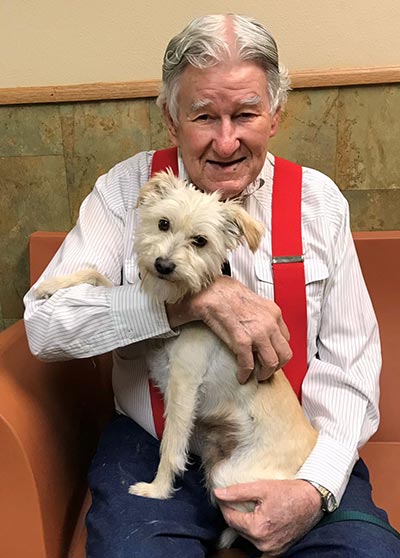
It has never been more evident that pets have a beautiful and meaningful effect on those around them. The Humane Society of Central Oregon (HSCO) works to strengthen the human-animal bond by advocating and compassionately caring for animals.
HSCO provides medical, behavioral, and physical care to thousands of abandoned, neglected, and abused companion animals each year. This shelter is a resource for critters at every stage of life, providing licensing and a spaying and neutering program, reuniting lost pets with their loved ones, offering pet food assistance to owners in financial need, and hosting full-service private cremation of our beloved pets when they’re gone.
HSCO’s mission has never been more vital. During the pandemic, HSCO has seen an increased demand for pet adoptions and greater financial stress for owners. The shelter’s many-faceted offerings have helped match 1,700 people with new pets and worked to provide resources for pet owners in a time of social distancing. During this time, the shelter remained open to provide services to the community. HSCO reunited 808 lost animals with their families. HSCO’s HOPE Pet Food Bank distributed over 28,300 pounds to seven local human food banks and to the homeless to help people keep and feed their pets. HOPE also distributed blankets, pet beds, toys, and dog jackets. On top of distribution to food banks, over 1,000 families came to the shelter for HOPE pet food assistance.
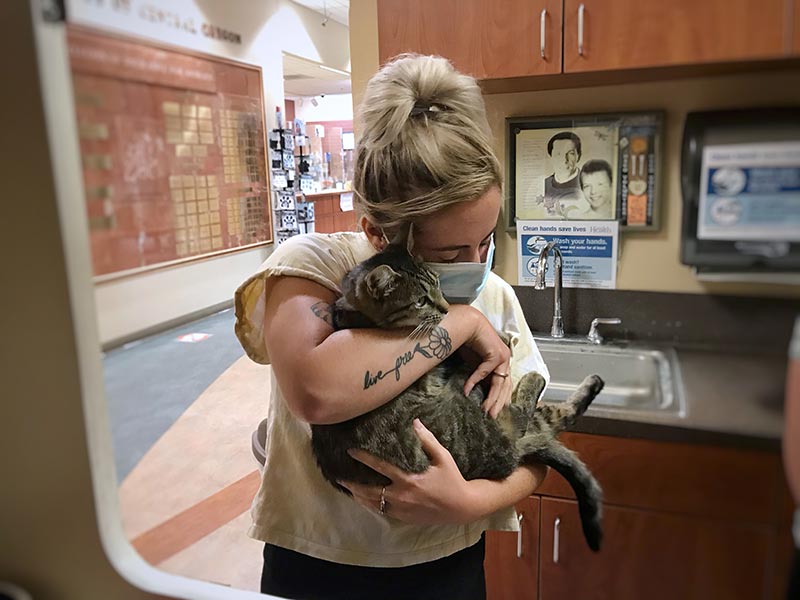
Would you like to help HSCO further its mission? Join us in lending a hand!
There are so many opportunities to volunteer with HSCO, from fostering and training to event support and helping customers at HSCO’s Thrift Store. You can learn more about how to volunteer at hsco.org under the “Volunteer With Us” tab.
You can make a one-time or recurring donation to HSCO here.
You can donate dog and cat kibble to a shelter by taking a one-question quiz on freekibble.com and freekibble.com/kat/. Win or lose, kibble is donated!
Thank you, Humane Society of Central Oregon, for championing the creatures in your community!
Boys and Girls Clubs of Ada County
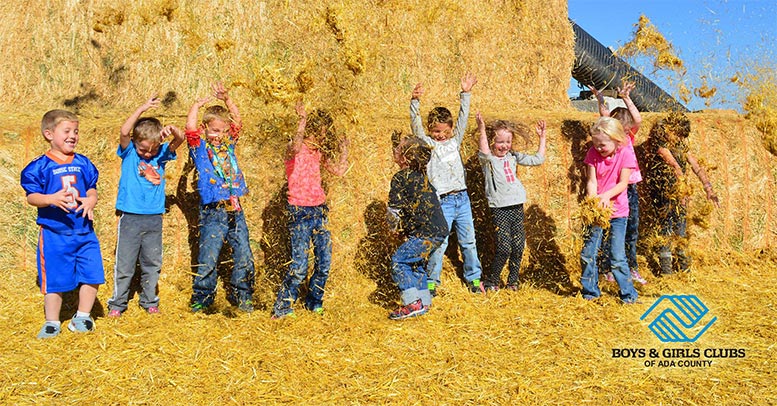
Every kid deserves a place to feel safe, connected, and encouraged to grow. In Ada County, Idaho, and many other counties across the nation, that place is the Boys and Girls Clubs.
The Boys and Girls Clubs’ mission is to enable all young people, especially those who need us most, to reach their full potential as productive, caring, responsible citizens.
The Boys and Girls Clubs of Ada County has identified poverty, graduation rates, child obesity, and juvenile crime as problems they can help solve.
One big way to break the cycle of poverty is to provide enriching experiences, meaningful relationships, consistency, and reliability to low-income kids. This can help the 1 in 5 children who live in poverty close the achievement gap — by graduating from high school and staying out of the juvenile justice system.
By providing out-of-school educational opportunities that reinforce learning and social-emotional development, the Boys and Girls Clubs of Ada County aims to help more kids graduate from high school. In Idaho, 3 out of 10 children won’t graduate high school on time. But the vast majority of Boys and Girls Clubs members are expected to graduate on time.
Physical health is also vital to the growth and development of our kids, and there’s plenty of opportunity to help when 3 out of 10 kids are considered obese or overweight. The Clubs’ programs offer kids healthy meals daily, teach them nutrition, help them develop healthy habits, and promote physical exercise.
This year, First Interstate will work with the Club in Kuna, which has worked to stay open throughout the pandemic. The Club served more than 265 children in 2020 and was the only location in Kuna offering free summer meals (breakfast and lunch) to kids facing hunger. And this school year, the Club aims to expand meal offerings to include healthy suppers! We are excited to support the Kuna Club in its efforts this year!
Do you want to be part of the solution and give to the Boys and Girls Clubs? Find opportunities to get involved below:
You can donate supplies Clubs need to keep kids engaged. Individual Clubs in Ada County have built wish lists with specific items they need here. If you’d like to give to a Club local to you, it’s a good idea to reach out and ask what they need.
You can apply to volunteer with the Boys and Girls Clubs of Ada County here. Volunteers can choose which program area to support — athletics, arts, games, or education.
You can make a one-time or recurring donation to the Boys and Girls Clubs of Ada County here.
Mobility can be a huge hurdle to breaking the poverty cycle. To help an individual by addressing mobility, you can donate a car! Call the Idaho Youth Ranch at 208-375-7965 to learn more about the program.
Thank you, Boys and Girls Clubs, for championing the growth and development of kids in so many communities!
Feeding South Dakota
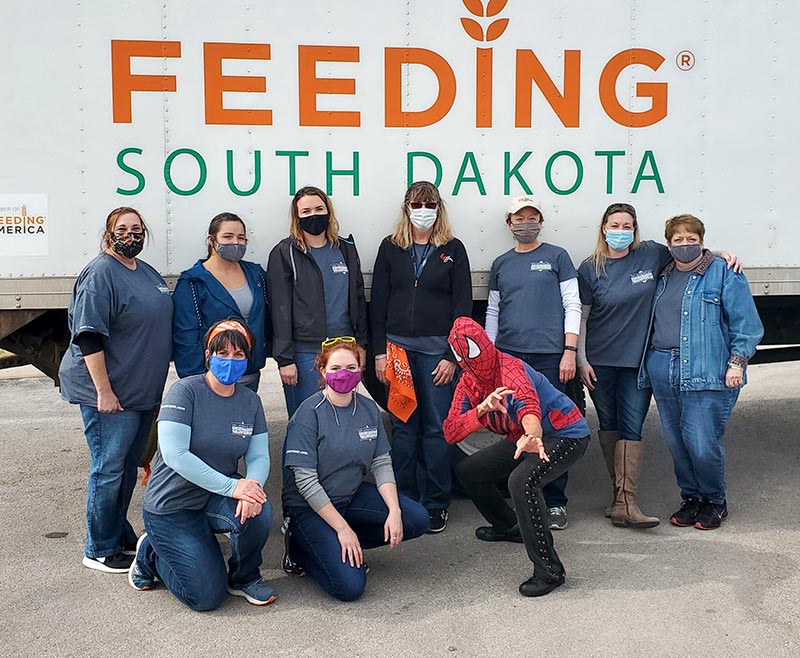
South Dakota’s economic, social, and emotional health rely on food security and good nutrition. That’s why Feeding South Dakota is working to end hunger in their state.
In South Dakota, 1 in 9 people is food insecure. And, 1 in 6 children are food insecure. About 14% of South Dakotans live below the poverty line. In four counties, that number rises above 40%.
What happens when people don’t have enough money to pay for groceries? In some households, they see an emergency solution in skipping meals — a choice that compromises individual mental, emotional, physical, and social health. Others feel they need to choose groceries instead of paying bills (utility, medical, or housing), school costs (loans, tuitions, childcare or school supplies), or transportation costs (gas or public transit access).
Individuals forced to make these compromises often find themselves in a cycle of poverty that is incredibly challenging to emerge from.
That’s where Feeding South Dakota comes in.
Through a combination of food banks, mobile food pantries, distribution programs and child hunger initiatives, Feeding South Dakota provides meals to about 55,000 individuals in need each month. In 2020, Feeding South Dakota distributed nearly 14 million meals!
This year, First Interstate is volunteering to support Feeding Deadwood, an affiliate of Feeding South Dakota that began in March 2020 to address increased need because of the pandemic. Feeding Deadwood distributes grocery bags of food every Friday, serving 25-30 households each week.
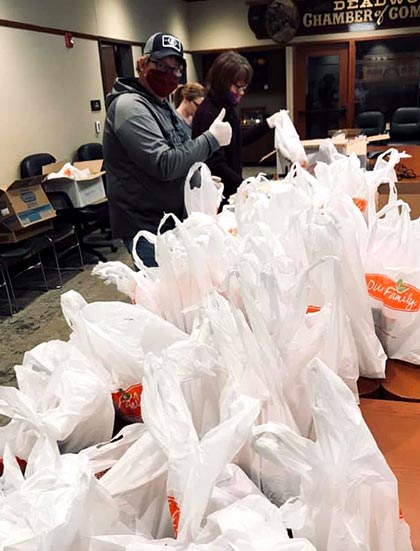
Would you like to be part of the incredible team working to eliminate hunger in South Dakota? Lend your support by volunteering or making a donation.
Every $1 donated provides three meals to a South Dakotan facing hunger. That means $30 can feed an individual three square meals a day for a month!
Host a “Casual Day” at your workplace to raise funds for Feeding South Dakota! You can then donate the funds raised by the people who paid to participate in the events.
Are you interested in delivering meal boxes to adults in need? You can email info@feedingsouthdakota.org or call 605-335-0364 for more information.
Thank you, Feeding South Dakota, for seeing this pressing need and helping us all be part of meeting it!
YWCA Billings
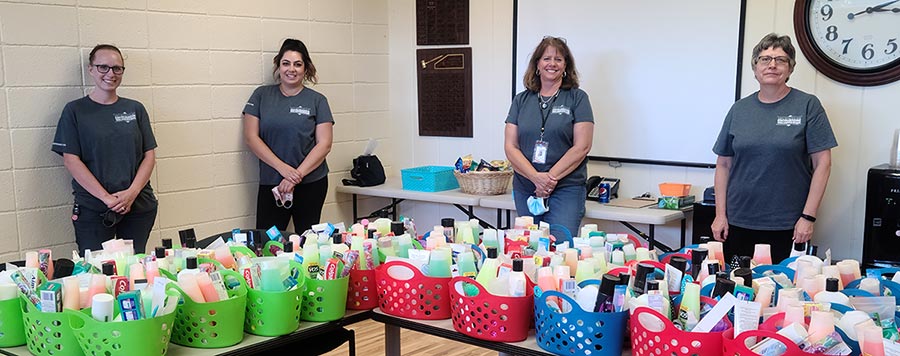
YWCA Billings is working to ensure women and children in the region know they don’t have to stay in an abusive situation, and they aren’t on their own when it comes to rising out of poverty. This is especially relevant in Yellowstone County, where 1 in 3 women is a survivor of violence. And where a mother experiences abuse, her children often do, too.
By providing housing and transitional services, YWCA Billings helps women and children in unsafe situations break the cycle of violence and poverty. This incredible organization helps those in need find safe harbor, learn skills to help them land jobs, maintain safety from dangerous relationships, and recover from the psychological and emotional effects of domestic and sexual violence.
What does that look like in practice?
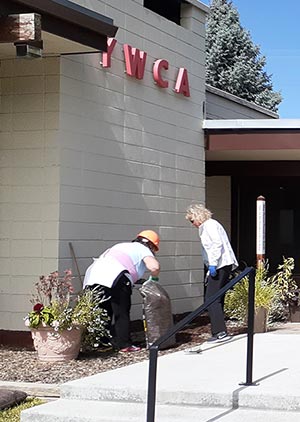
YWCA Billings does so much good in our community. This nonprofit offers several different kinds of housing — emergency housing for immediate needs, affordable apartments available to low-income women and families, and support to help domestic violence survivors find more permanent affordable housing that is also safe.
Transitional services are also available to help these women and children break the cycle of poverty and violence. These services include skills training, job-finding support, guidance for funding and using resources to care for children, legal advocacy, and clinical services like counseling.
In the past year, YWCA Billings provided 9,586 nights of safe shelter to women and children in need. YWCA Billings’ 24-hour help line also helped 3,113 callers receive counseling and other assistance referrals.
Are you passionate about the big changes YWCA Billings is making? You can help make a difference by volunteering or donating.
Thank you, YWCA Billings, for all the good you do in your community!
Food Bank of Wyoming
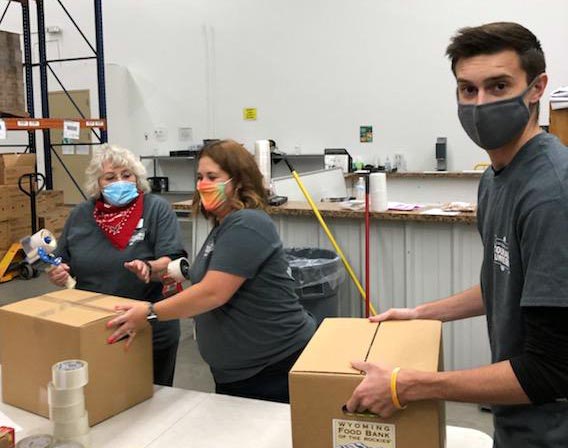
As the largest hunger-relief organization in the state, Food Bank of Wyoming aims to build community while providing nourishment to people facing hunger.
In Wyoming during 2020, 1 out of 6 adults faced hunger. For children, that number was 1 in 4. To tackle this challenge, Food Bank of Wyoming distributes more than 1 million meals every week. Food security in Wyoming has seen a statistically significant increase in the past 15 years, according to U.S. Department of Agriculture statistics from 2019.
And, as was true worldwide, the COVID-19 pandemic triggered a significant increase in need in the state. Layoffs, unexpected medical bills, and a culture of sheltering in place all added new strains to individuals.
Food Bank of Wyoming targets this issue, serving as the distribution hub for food, essentials, and resources to more than 160 hunger relief partners throughout the state.
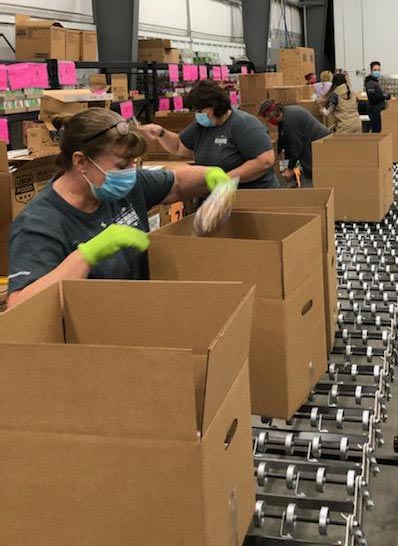
Are you passionate about ending food insecurity in Wyoming? Find out how you can lend Food Bank of Wyoming a hand here:
You can apply to volunteer as an individual (1-4 people) or a group (5 or more people).
Every $1 given to Food Bank of Wyoming provides enough food for four meals. That means a $25 donation provides three square meals for a single person for a month!
You can learn how to start a fundraising drive with your friends, family, co-workers and community here. Options include virtual food drives; corporate and community fundraisers; and athletic events like walks, runs and cycling races!
Thank you, Food Bank of Wyoming, for taking the lead in tackling food insecurity in your state!
 FDIC-Insured - Backed by the full faith and credit of the U.S. Government
FDIC-Insured - Backed by the full faith and credit of the U.S. Government